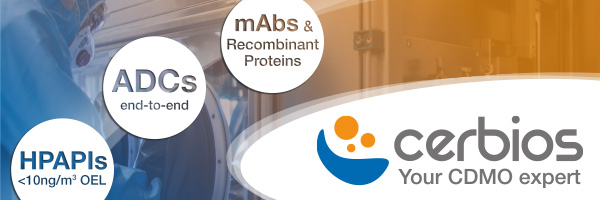Contract Services
Toll agreements in the chemicals industry 11th November 2019
By Melinda Davis Lux, Corporate and M&A Partner at Womble Bond Dickinson (US)
Melinda Davis Lux, Corporate and M&A Partner at Womble Bond Dickinson (US), offers a guide to creating ‘win-win’ agr

Melinda Davis Lux, Corporate and M&A Partner at Womble Bond Dickinson (US), offers a guide to creating ‘win-win’ agreements between global manufacturers and toll contractors in the chemicals industry.
A global manufacturer that needs raw materials processed to specifications decides to outsource the processing function. Why decide to outsource? There could be a variety of reasons.
- The manufacturer has capacity constraints.
- A third-party processor has specialized expertise or equipment to perform the processing function.
- A third-party processor operates a facility in close proximity to certain of the manufacturer’s customers.For cost or logistical reasons (or both), it is efficient for processing to occur close to those customers.
- The manufacturer requires processing in small batches initially.The manufacturer’s operations are not designed optimally to process small batches.
A smaller manufacturer – which we’ll call the contractor – has the expertise to perform the processing function. The contractor has existing capacity, or is willing to purchase equipment and expand its capacity, to provide the processing function. This is an ideal situation for a toll arrangement.
Technically defined, a toll agreement is an agreement pursuant to which a manufacturer provides raw materials to a contractor, and the contractor processes those raw materials to meet the manufacturer’s specifications. Toll arrangements often become more complex, however, and may morph into custom manufacturing or commission manufacturing agreements. Instead of providing raw materials directly to the contractor, the manufacturer may direct the contractor to purchase raw materials from vendors identified by the manufacturer. Or the manufacturer may provide some of the raw materials, and the contractor supplies some of the raw materials. The processing function is specific to the particular arrangement as well.
Tolling as a strategic partnership
In any commercial relationship, the parties can approach the relationship with a transactional mindset, viewing negotiations as a win-lose proposition. Alternatively, the parties can approach the relationship with a collaborative mindset, seeking to create a win-win situation.
Negotiation theory tells us that a transactional approach is appropriate for a one-time interaction, when the negotiation involves a discrete set of variables and the outcome – such as cost – is the most important factor. A collaborative approach, on the other hand, is appropriate when the parties place importance on the value of the relationship, and when the relationship is long term.
In more complex, collaborative negotiations:
- There are many variables to be considered and negotiated
- The parties are motivated to find common ground to align their interests
- The parties discuss creative solutions that benefit both parties, resulting in a ‘win-win’ situation.
Many companies approach toll arrangements with a transactional mindset. The terms of the deal are win-lose – for example, the price is higher or lower, or the intellectual property enhancements are owned either by the manufacturer or the contractor. Most toll arrangements, however, are long-term, strategic relationships where ‘win-win’ outcomes should be the goal.
Identify the value that each party brings to the relationship
To provide proper orientation to the negotiation, the parties should identify the key reasons why they selected one another. The parties can then focus on the elements of the contract where they most want to elicit value.
Did the manufacturer select the contractor because of the contractor’s location? In that case, the toll agreement should require the contractor to process exclusively at that location. Did the manufacturer select the contractor because the contractor has capacity to meet specific volume requirements? In that case, the manufacturer should require that the contractor provide priority to the manufacturer’s needs. In return, the manufacturer may guaranty certain minimum volumes.
Collaborate on pricing
Often, the manufacturer provides its ‘playbook’ for the processes to be used by the contractor to meet the manufacturer’s specifications. The playbook may reflect processes utilized for a long time by the manufacturer in its own facility, or it may reflect processes developed in lab testing or by other means.
The manufacturer asks the contractor to quote its price for the processing services. However, because the contractor’s facility layout, equipment, and employees do not mirror those of the manufacturer, the results may be different. The processes – when employed at the contractor’s facility – may require adjustments to meet the manufacturer’s specifications.
An upfront investment and cost sharing between the manufacturer and the contractor to run trial batches may save the parties from future headaches. By running trial batches, the parties can identify process discrepancies that could result in a failure to meet specifications or increased costs.
“The eventual price depends on what the parties decide is the process,” says Chuck Hinton, President of Ethox.
The toll agreement should also incentivize the parties to identify and implement cost reduction strategies. When pricing is determined, that pricing assumes a certain yield, says Jim Self, CEO of ProBioPharm. “As the toller gains experience, yields should improve and cost savings should result. Why not set cost reduction goals and share those savings?”
Use creative intellectual property sharing
The manufacturer brings intellectual property to the toll arrangement and continues to own its intellectual property. Similarly, the contractor comes into the relationship owning its intellectual property. Who should own intellectual property improvements developed as a result of the toll arrangement?
Many ‘standard’ manufacturer toll agreements provide that all intellectual property developed as a result of the processing services is owned by the manufacturer. The parties should consider the substance of the arrangement, however, and whether and to what extent the parties will collaborate to develop improvements. Both parties should be incentivized to invest in process improvements that reduce cost, increase yield, or result in other benefits. The parties will be better incentivized to make those investments when they will be able to jointly exploit some or all intellectual property developed as a result of those investments.
A more nuanced approach is for the manufacturer to own intellectual property in improvements made by the contractor, and for the manufacturer to grant to the contractor a royalty-free license to use that intellectual property. The contractor’s right to use the intellectual property may be limited to a certain territory or field of use. In many situations, when drafted carefully and customized to the particular arrangement, the parties may both exploit intellectual property rights in a manner that protects the toll arrangement and simultaneously allows the parties to commercialize intellectual property in other respective business endeavors.
To protect the contractor when the contractor invests in process improvements, the contractor may ask for the toll arrangement to be exclusive for a set period of time. This prevents the manufacturer from terminating the relationship with the contractor and disclosing the improvements to another contractor replacement.
The extent to which valuable intellectual property will be created will depend on the nature of the processes and the specific toll arrangements. In most situations, both parties can benefit from the creation of new intellectual property, and there is a myriad of ways in which the parties can arrange to share those benefits.
Optimize equipment purchases
New equipment often must be purchased to support the toll arrangements. Who should purchase the new equipment? If the contractor purchases the new equipment, what assurances does the contractor have that the equipment will be fully utilized and that the contractor will recoup its investment?
One option is for the manufacturer to pay for the equipment cost over time by adding an equipment fee to the cost of the processing services. Because the contractor purchases equipment in anticipation of a certain contract volume over a certain period of time, the contractor should be protected if the volume or time expectations are not met. In that situation, the manufacturer may agree to pay for the shortfall as a result of a failure to meet those volume or time expectations to make contractor whole for the equipment purchase.
Conversely, the manufacturer may own equipment that it sells to the contractor if the manufacturer decides to outsource certain processing functions. The manufacturer may make a decision to outsource existing operations due to strategic changes in the manufacturer’s business lines or a facility closure, among other reasons.
In this situation, the contractor may agree to dedicate the equipment exclusively to the processing function for the manufacturer for a set period of time. The contractor may not pay for the equipment up front and instead the processing fee reflects a discount to accommodate the mutually-beneficial transfer of equipment. The manufacturer should retain a security interest or other right to the equipment in the event that the contractor fails to provide the processing services at the volumes agreed upon for a set period of time.
Final thoughts
Successful long-term toll arrangements must benefit both parties. The manufacturer generally decides to outsource processing to benefit from the expertise and capacity of a contractor. The contractor benefits for exactly the same reason – the contractor’s ability to deploy its expertise and capacity. This strategic fit should be viewed as a ‘win-win’ opportunity.
You can listen to Melinda Davis Lux talk about Demystifying Toll Agreements at SOCMA Week this December.
Join the Commercial Track on Thursday 5th December at 9:10 am to hear more!
Author:
Melinda Davis Lux, Partner at Womble Bond Dickinson (US), 550 South Main Street, Suite 400, Greenville, SC 29601, USA
Melinda Davis Lux, Partner at Womble Bond Dickinson (US), 550 South Main Street, Suite 400, Greenville, SC 29601, USA
T: +4 864 255 5478



